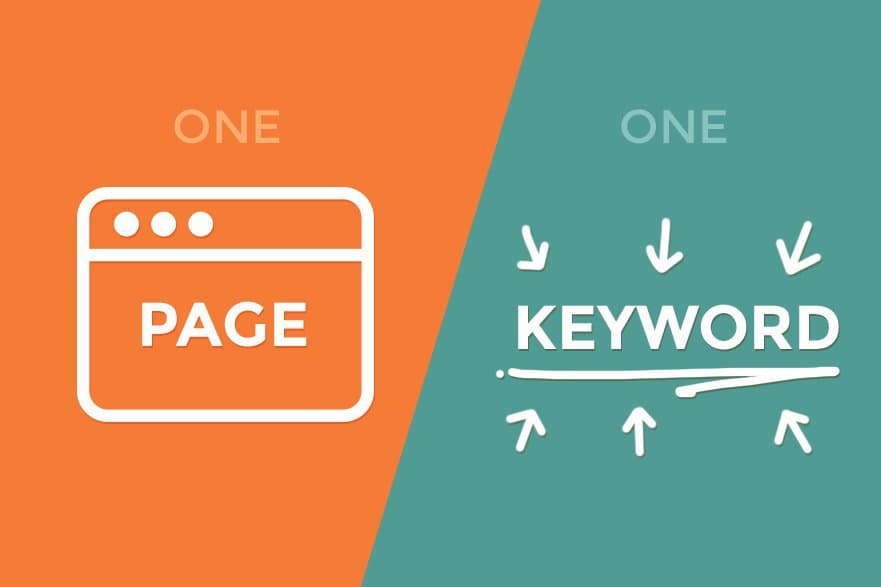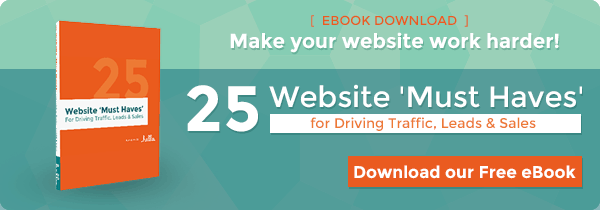Learn with Us
Is “One Page, One Keyword” SEO Still a Winner?


One of the biggest mistakes most people make early on in the SEO process is trying to play “Jack of all Trades” with their keywords. Your business is diverse, right? So why not represent that diversity everywhere on your website?
Trouble is, that kind of broad representation may say “This is what our website is about” – but it fails to suggest to Google and other search engines which page is about precisely what topic. Here’s what we can do about that.
First, a note about competition and SEO
It’s easy to look at the list of keywords you want to rank for and get a bit worried. What if I’m competing against Wikipedia for a broad term? What if my competitors own this space very strongly?
Those are legitimate concerns for search engine optimization – but there are many ways to address the core problem. As Tim Cook, CEO of Apple has said;
“You can focus on things that are barriers or you can focus on scaling the wall or redefining the problem.”
In this case, the problem looks like a level of competition you may not have the right content to deal with.
- List your subjects, all of them, from short (broad) to long (focused)
- Create a keyword hierarchy by associating keywords that work on the same topic
- Plan content to address every single term on that list.
It’s ok to want to rank well in search engine results pages (SERPs) for broad keywords – we’re putting effort and energy into “search engine optimization” for example, which is one of the toughest terms in our industry to rank for. However, that means having an answer for every keyword in your list, even if the list is 300 terms long.
Keyword Research – From Wide to Narrow
We’ve known for some time that the idea of long-tail keywords makes ranking easier, because of the way people conduct searches. It’s also been clear for years that tactically drawing attention to specific pages for carefully chosen, short lists of words works better.
If you’re looking for some new footwear, for example, chances are you’ll drill down through some iterations of “shoes” (way too broad), to “shoes for sale” (getting closer), and into very particular needs – like “buy shoes online” if that’s your need, or “shoe stores in Winnipeg” if you happen to live here and want to try something on.
By understanding this behaviour and generating keywords to target around the way users search, you’ll find a lot of inspiration for creating content. This can come in the form of new feature pages, infographics, blog posts, or even changes to existing content so it reflects your keywords more closely.
Matching Keywords to the Page’s Purpose
We’ve spoken before about your website having a job to do – this is true of each page on your website as well. In a time long past, your home page (the TLD of your website with nothing but a / after it) was where your visitors would enter, so its job was to direct traffic around the website. That’s no longer the case.
Visitors from all sources can enter your website on any given page – which makes it all the more important to keep your keyword targeting for those pages in check.
In most cases, this will mean that;
- Pages focused on a brand will contain information for every involvement you have in that brand – as category header pages, their job is to be focused on a broad topic, so they benefit most from optimization around broad keywords
- Pages focused on a single product will contain detailed information about that product and only be optimized for those details, not for the brand – or any other phrases, if you can avoid it.
This is where we come to the “One page, one keyword” argument – which is that each page on your website should have a single primary focus keyword that all of your search engine optimization efforts for that page relate to.
This means no more flooding your titles with “Widgets in Tuscaloosa, Red Widgets for Sale, Blue Widgets for Sale, Tuscaloosa Widget Sales” – just… Yeah, just stop thinking that way entirely. It hasn’t been a good idea for years.
How does content differ for long-tail keywords?
The longer your target keyword, the more important it is that the content associated with it answer a specific user intent. While it’s possible to do this with product or category pages in some cases, that’s not always true – and it’s where Inbound Marketing methods such as blogging really shine as relates to SEO.
For example, if your Google Analytics (or other tracking tool, because you should be using something and Analytics doesn’t solve everyone’s needs equally), shows you’ve had visits for terms like;
- Solder reflow equipment options,
- Achieving uniform solder bondline control between substrate and baseplate in IGBTs
- specifying solder preforms – engineering drawing/specification
Boring, right? Well, at least one business seized on highly specific content creation, and has been doing so for years by having engineers write on their blog. All three of those keywords above are actual blog titles from Indium Corporation, who are among the best in the world at taking highly specific terms and making lemonade from them.
Too many keywords? Not enough pages – build more. But do so carefully.
If you look at your various recording tools – Analytics, advertising history, customer feedback and questions – you’ll find lots of opportunities to craft long-tail keywords, which you can use to create content out of.
It’s important to keep growing your content library, without bloating it mindlessly. A couple of years ago, the glut of content creation was in full swing, and Google adjusted for that with their “Panda” update in 2011, which began penalizing websites with poor-quality content.
When creating content for your website, keep in mind who it’s for, what kinds of needs it answers, and where it leads – every page on your website should direct traffic appropriately, after all, if the traffic you gain from search engine optimization is going to be valuable.
Growing your content library will help grow your traffic, and your business.
Creating a strategy, and a set of associated tactics to handle search engine optimization for each important keyword in your list can help you get started on making that growth happen.
So what happens with this “One page, one keyword” rule?
For most types of content you’ll have on your website, a single page should answer a single need that users can express. However, users express those needs in a wide variety of ways – so in some cases, answering a variety of the expressions of those needs on a single page makes sense.
In the past, focusing tightly on a single specific keyword meant we developed way more content than visitors found valuable. Now, with advances in our understanding of user intent, and search engines having grown toward natural language search, we can answer a single user intent with a single page, rather than just one keyword.
There will still be cases where content directed to one highly precise phrase make sense – see the examples about Indium’s blog above – but what’s important is to create a library of content that is well optimized which can provide value to each potential customer who visits your website.
If you’re looking to get more out of your website – more leads, more sales, more visibility, you may like our new eBook. It’s got more information than this blog post – way more – and it’s free. Just click the image below.
Source: Hello BLOG

